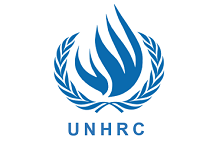The role of information and communication technologies in ensuring economic, social and cultural rights and reducing Inequalities
27 Mar 2018 02:00h
Event report
The event which was co-hosted by the Permanent Missions of Bangladesh, France, Japan, India, the Philippines and Vietnam, and the International Telecommunication Union (ITU), was opened and moderated by Amb. Duong Chi Dung of the Permanent Mission of Vietnam.
He emphasised the role of information and communication technologies (ICTs) in achieving the sustainable development goals (SDGs) set by the UN 2030 Agenda for sustainable development.
The discussion was opened with questions regarding the ways and possibilities for ICTs to help promote economic, social and cultural rights. The discussion then went on to identify the challenges of investing in ICT infrastructure; and measures that could help achieve widespread access to ICTs globally. Furthermore, questions about how to better promote joint ICT actions, as well as the possibilities for UN agencies to advance ICT issues in eradicating poverty were raised.
Chi Dung stated that Vietnam ranks among the 50 countries most affected by ICT-related changes, with 53% of the Vietnamese population using the Internet and being active on social networks. The country focuses on continuously developing the accessibility of services to its citizens through e-government initiatives and the establishment of databases. Key challenges remain in the area of ICT literacy, as they do not want to leave anyone behind, and infrastructure.
The ambassador mentioned the potential of ICTs in enhancing farming and fishing in the country. According to him, the implementation of technology in these areas will not disrupt production, but rather, encourage young farmers and fishermen to increase their productivity. He also pointed to the potential gains for these professions by being able to have real-time access to market information and thereby increase profit margins.
The Minister of Gender and Family of the Maldives, Ms Zenysha Shaheed Zaki, stated that the Maldives have one of the highest penetration rates among Internet users in Asia. The country pays particular attention to developing a widespread ICT infrastructure to alleviate the limitations imposed by its geography (https://www.itu.int/net/itunews/topics/2011/06/22.aspx). Therefore, services such as e-learning are used to train teachers situated all over the archipelago and new systems are being elaborated in order to facilitate the tasks of social workers. The Maldives embrace the opportunities that the 4th industrial revolution has brought along, especially for developing countries and geographically dispersed countries.
The Permanent Representative of the Permanent Mission of India, Amb. Rajiv Kumar Chander, presented the advances made in India, tracing its implementation of ICTs back to 1976 when the country’s space programme was created. According to Chander, India’s success in incorporating ICTs into large parts of the country and the rapid growth in the use of ICTs that the country is currently witnessing, was spurred by the Digital India Programme (https://www.digitalindia.gov.in/content/about-programme). The ambassador also identified the development of infrastructure and cybersecurity to be major challenges. In addition to these problems, India is also faced with a lack availability of online services in the local languages.
The Permanent Representative of the Permanent Mission of Japan, Amb. Junichi Ihara, spoke about the interest of addressing ICTs and human rights together. He further elaborated on the need for a deeper co-operation between UN agencies regarding these topics, and about developping a more cross-cutting approach.
According to Ihara, developing countries are enabled by ICTs and will eventually be able to skip certain steps of development by utilising the advances made by technology. He also foresaw the potential for developing countries to exceed certain developed countries in specific ICT related areas and named the widespread use of FinTech applications in Kenya as an example.
Japan’s government is helping developing countries create and maintain ICT infrastructures. Ihara identified foreign investment as a catalyst for the roll-out of infrastructure while also mentioning the importance of private investments and the role of the private sector in developing reliable structures.
The Deputy Permanent Representative of the Permanent Mission of France, Mr Francois Gave, noted the enormous potential of ICTs in reducing poverty but also cautioned against its potential to further increase the revenue gap on a national and international level.
Gave sees the potential for the eradication of extreme poverty through the smart use of ICTs because they can be used to break the isolation of people – a factor that he identifies as a problem having a lot to do with poverty. Additionally, ICTs lower the cost of many services and utilities, and help to better inform and empower people that are victims of extreme poverty. The deputy representative further noted that it would be the least developed countries (LDCs) that might profit most from the ICT revolution due to the above mentioned factors.
The Head of Corporate Strategy Division at the International Telecommunications Union (ITU), Mr Catalin Marinescu, stated that an often-overlooked fact in evaluating access to the Internet and other ICTs is the evaluation of how many people chose not to use these technologies despite having access to them. He also noted the growing gender gap in Internet users that has been observed over the last five years, particularly in developing countries.
According to Marinescu, policy-makers should aim to create incentives for people to increase digital literacy by adopting strategies to increase connectivity and to offer content in the local languages.
Issues of achieving full coverage in remote areas where building infrastructure is expensive and not cost-effective still remain, but these are areas in which he sees UN agencies and other bodies of the international community involved to help overcome these challenges.
Related event

